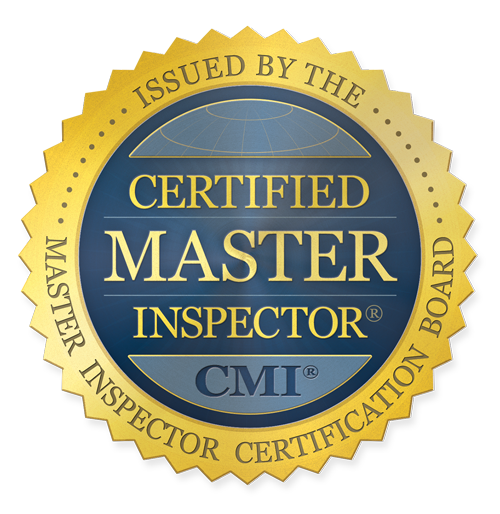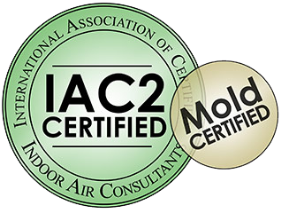Four point home inspections are standard for real estate transactions and to satisfy homeowner’s insurance carriers. However, when purchasing a home in Florida, we recommend investing a fraction more to schedule a whole home inspection.
Benefits of a Whole Home Inspection
The cost of home inspections varies according to the size of the home and the level of inspection detail. However, the difference in price between a four point and whole home inspection is marginal when compared with the benefits.
While the 4 point inspection looks at four critical home systems from an insurance claims prospective (roof, HVAC, electrical, and plumbing), a whole home inspection looks at every facet of the home. The resulting report provides information on what is acceptable, what needs to be repaired or replaced in the near future, and critical issues that should be taken care of ASAP.
Systems & Features Inspected During a Full Home Inspection
A complete inspection of a home includes the 4 systems listed above, but we also take a look at or for:
- Grading and drainage
- The foundation (cracks, unusual slope or lean, erosion, etc.)
- Signs of sewer or septic issues
- Attic insulation and ventilation
- Siding and trim
- Exterior doors and windows
- The chimney and fireplace
- Exterior penetrations
- Lighting, electrical fixtures, switches and outlets
- Interior walls (looking for cracks, signs of water damage, etc.)
- Signs of pest infestations
- Any evidence of mold, mildew, or moisture damage
- Landscaping features that compromise the home structure
- Interior safety features in the home and any attached accessory buildings (identifying if there are enough smoke or CO detectors, any signs of fire sprinkler system issues, etc.)
A whole home inspection is to the house what a complete physical is to the body. We have a chance to look at and test the entire system at once so you can create a plan for what to address next.
You Should Schedule a Whole Home Inspection If…
We only recommend a complete home inspection in certain situations. For example, if you’re purchasing a brand new home, we recommend scheduling a new home inspection instead.
Or, if you recently purchased a home that “passed” its 4 point inspection with flying colors – and you’ve diligently honored home maintenance protocols, you’re probably in the clear.
However, we do recommend scheduling a whole home inspection if:
You’re purchasing a home built ten years or more ago
A home that’s ten years old or less can look pretty great on the outside because it doesn’t take much to spruce up the curb appeal before a sale. However, unless the homeowners can provide impeccable home maintenance records, we’d bypass the 4 point and head straight to the complete home inspection model.
You may find far more damage than you would have thought (mold or mildew rot, a squishy roof deck, leaky plumbing, broken or malfunctioning fixtures, etc.)
The final purchase price and escrow fees tap your budget
Similarly, if you’re spending every penny on the home, which is increasingly common in this era of higher interest rates, you need a turnkey home. If you don’t have money in the budget to rehab or complete a succession of surprise repairs during the first year, investing in a full home inspection is worth it.
You will know exactly what you’re getting into by taking a closer look at the entire home, rather than “the big four” included in a 4 point inspection. Sometimes, this means passing on a current prospect and waiting for the right, well-maintained home to come up for sale. You’ll be in a bad spot if you move in and the house begins revealing must-repair issues you can’t afford.
You can’t physically walk through the home yourself
When we partner with real estate agents, they increasingly learn more about the home inspection side of things. We love how savvy our real estate partners become over the years, often mentioning things they’ve noticed that we confirm during the inspection.
Even so, they’re not certified home inspectors. If you live out of the area or are on vacation when the “ideal home” comes up, schedule a whole home inspection. Without being able to walk through the home on your own, a full home inspection is the only way to get the peace of mind you need to make an offer in the short time required so you don’t risk losing the sale.
You plan to make it a rental home
We always recommend that landlords complete a full home inspection before renting a house to tenants. There are a couple of reasons for this.
First, your landlord/tenant relationship will be off to a much better start if your tenant doesn’t encounter issues (backed up septic, leaky faucets, noisy HVAC system, fixtures or switches that don’t work right, etc.). If they have to keep calling for repairs, they’ll feel like they got a bad deal and have the grounds to move elsewhere.
Second, not all tenants are good about noticing more minor issues (that can blossom into larger ones) – or calling about them. We can tell you firsthand that rental units are far more likely to have unaddressed leaks, mold/mildew issues, structural damage, or faulty plumbing/electrical works because some tenants don’t care OR are afraid of calling and being held responsible.
Scheduling a complete home inspection lets you get the house in optimal shape for renting, providing a solid foundation before the first tenant moves in.
You’re waiving the home inspection before purchase
First, we strongly advise to never purchase a home without a home inspection. That’s especially true in Florida, where homes previously damaged by storms or hurricanes can hide nightmare structural damage or may have been rebuilt by shoddy, fly-by-night contractors. You can wind up spending a tremendous amount of money on a home that has to be torn down and rebuilt.
However, if you did waive an inspection to purchase the home of your dreams, a whole-home inspection is the only way to go. A 4 point inspection wouldn’t be enough to determine the amount of potential damage done or what might be needed to bring the home back to the structural and systems standards it should be.
The home was inherited
Inheriting a home is sort of like purchasing a home sight unseen. Depending on the home’s condition, what feels like a significant asset increase can become a complete financial and energetic drain. You may pay a substantial amount in taxes depending on how the estate was set up, or the home may require a tremendous financial investment before anything can be done with it.
A whole home inspection determines the exact condition – and value – of the structure(s) so you can decide what to do next (sell, move in, rent it, etc.).
Super Inspection Leaves No Stone Unturned
When you hire Super Inspection Pros for a full home inspection, we guarantee that we leave no stone unturned. We’re InterNACHI-certified inspectors and work with the highest ethical standards in the industry.
Contact us to schedule your whole home inspection, and we promise to perform the inspection and provide you with a complete, accurate, and detailed inspection report in 72 hours or less.

